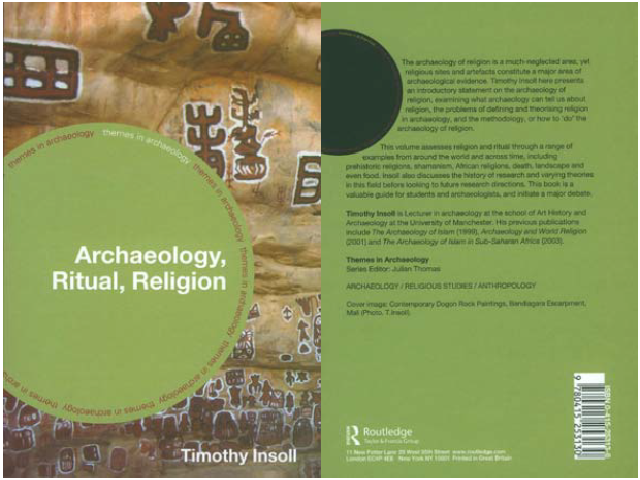Insoll, T. 2004. Archaeology, ritual, religion. – London, Routledge
Abstract
In ‘Archaeology, Ritual, Religion’ Timothy Insoll offers an introductory statement on approaches to the archaeology of religion. Far from a ‘how to do’ manual, the book represents rather a moment of reflection on past and contemporary approaches to the subject. Insoll maintains that religion is an aspect of society often overlooked in archaeological research, whilst the subject of the archaeology of religion itself lacks an adequate body of discipline-specific theory. The study transcends regional and temporal boundaries and in this review is considered with particular reference to the archaeological recovery of ancient Egyptian religion, largely of historic periods.
The book opens with an account of a contemporary sacrificial ritual at Dafra, Burkina Faso, a device that introduces effectively the complexities often inherent in religious practice and belief and the difficulties faced in the recovery of such complexity through material remains. From here, the theme proper is introduced and the question of the definition of central concepts arises. ‘Religion’, ‘ritual’ and related terms receive attention in a brief survey of definitional trends. Insoll himself avoids committing to rigid definitions but highlights some of the more important components of religion: the interweaving of the intangible, irrational and indefinable within a logical framework; a focus on the essential concerns of the human condition and the potential to shape mindsets and word views. Components of ritual: a combination of action and mental activity; elements of emotion, experience, movement and communication; often a facet of religion, but certainly not its whole. This leads to the central thesis of the book: that religion is more than ritual alone and is archaeologically recoverable as such. Read more...
Downloads




